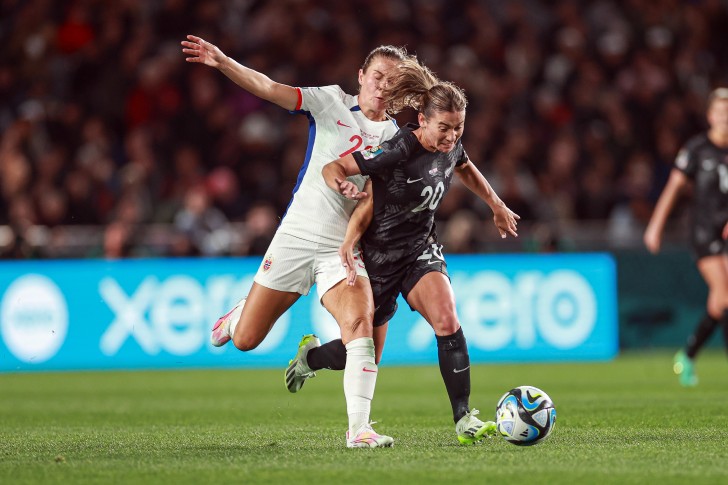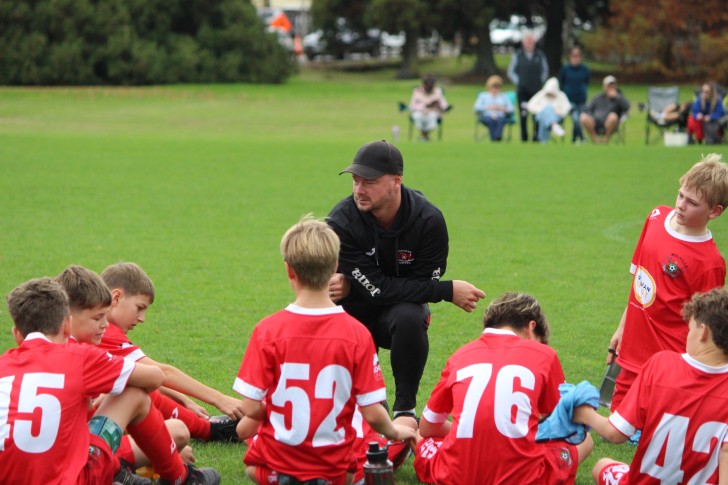MacKenzie’s story: ‘It took two years to feel normal’
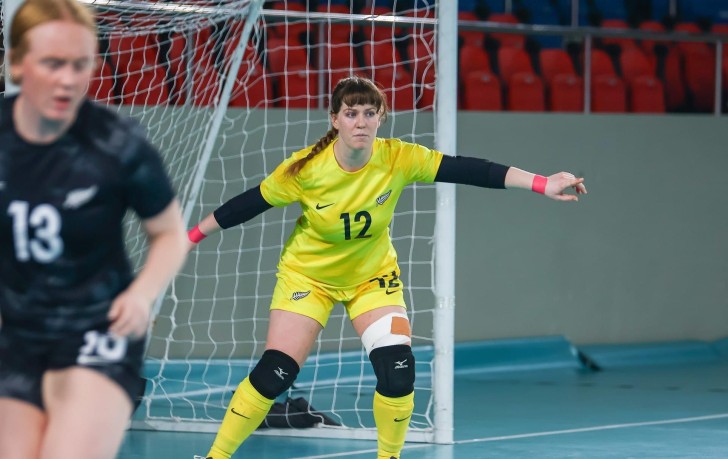
Futsal Fern MacKenzie Falco had to give up her football dreams after suffering a series of concussions. She’s sharing her experience of the ‘invisible injury’ to help the next generation of players prioritise their wellbeing.
Goalkeeper MacKenzie Falco says the pain and symptoms from her football-related concussions were ‘incredibly overwhelming and disorientating’.
The 25-year-old futsal international from Christchurch has had at least six concussions and the first one, which she suffered in 2018, had a significant impact on her life.
“Moving made me dizzy and nauseous,” she says.
“The constant headaches were brutal. Not being able to do anything except rest was frustrating.”
MacKenzie was playing as a goalkeeper for her club side in the Mainland Football competition. She went to scoop up a ball when an opposing player drove their knee into the top of her head.
“The impact didn’t knock me out, but I collapsed to the ground with pain and nausea straight away. The impact also made me turtle my neck which worsened my symptoms long-term.”
MacKenzie didn’t think she was too badly concussed so decided to keep playing. But then she deteriorated quickly.
“I had a splitting headache when the half ended,” the Futsal Fern says.
“I felt nauseous and weak, my neck hurt, my vision wasn’t sharp, I couldn't focus, and my emotions were all over the place.”
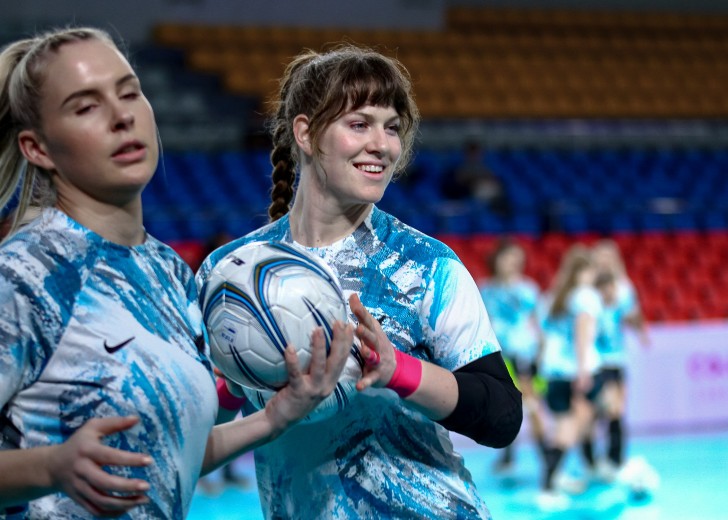
Getting through a hard time
It took MacKenzie almost two years to feel normal. She says it was the hardest time in her life.
Initially, she had two weeks off school before attempting to go back. But she couldn’t get through a class without feeling nauseous or having a sore head. She would end up calling her mum in tears, asking to be taken home.
“I couldn’t do the things I loved most, like playing football and futsal. I could barely watch movies or read books, I couldn’t hang out with my friends, and even going for walks made me feel weak and sick,” she says.
“I fell into a bit of a depression.”
MacKenzie says concussion isn’t always taken seriously by others as it’s an invisible injury.
“No one could see how bad it was so I felt like I had to justify myself more than I should when I wasn’t feeling good. I was incredibly emotional all the time and I didn't feel like myself – it was quite traumatic.”
MacKenzie was nervous and excited to get back into football after two years on the sideline but soon had to give up on some of her dreams.
“I ended up calling my football career quits because of my concussions. I had plans to play college football in America but had to stop and figure out a new life plan,” she says.
“Funnily enough, I found that futsal goalkeeping didn’t give me any concussion symptoms and I ended up falling in love with futsal. It was the best feeling in the world to go to trainings, play games and be able to give it my all again.”
But, over the next few years, MacKenzie suffered a few more concussions while goalkeeping in futsal.
Most of them were from close-range shots straight into her head.
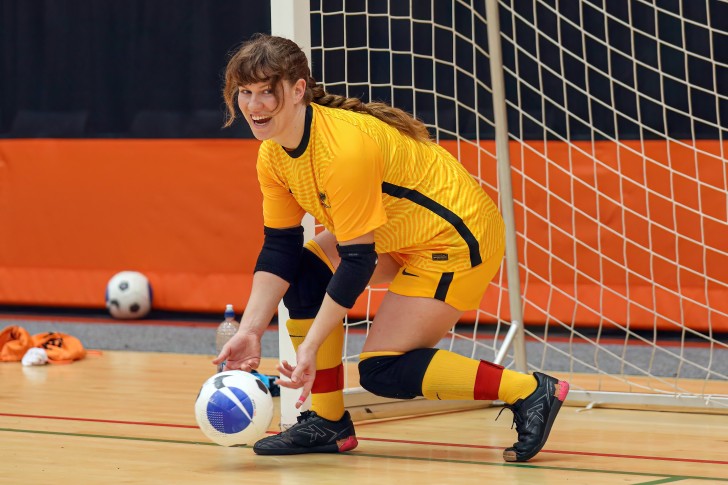
‘You need to take care of your brain’
MacKenzie says the competitive nature of football and futsal means some players aren’t honest about how they’re feeling.
During her recovery, she pretended she was fine to make football and futsal teams, to not be behind on school and university, and to be able to earn money at work.
She pushed herself to play first division and national league football, go to an under-20 football camp, and make national league futsal teams because she was scared of falling off the radar.
She now takes any concussion-related symptoms seriously and puts her wellbeing first. Having learned the hard way, she has good advice for any young footballers when it comes to concussion.
“Take it seriously, it doesn’t matter whether you get knocked out or not, or how minor the concussion is,” she says.
“It doesn't matter how many games you miss or whether you have trials for something big coming up. Your brain is the most important part of your body, and you need to take care of it.
“There will always be more opportunities to show how amazing you are, but if you don’t take time to properly rest and recover, you’ll struggle in all areas in your life, not just sport. You run the risk of not being at your best for longer if you don’t take it seriously.
“Also remember to be kind to yourself. Concussions affect your emotions and your mental health. You need to advocate for yourself for an invisible injury, and this can be difficult when talking to parents or coaches.
“Healing isn’t linear so be kind to yourself on the days that are harder to get through and really prioritise rest.”
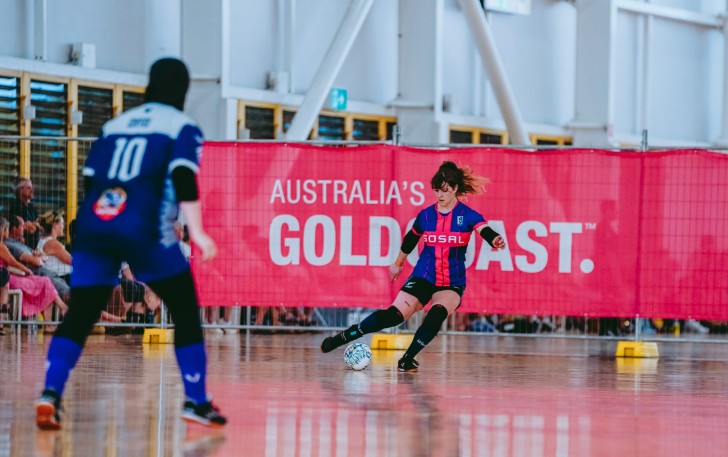
Changing the culture around concussion
In 2024, ACC accepted 1,221 football-related concussions which came at a cost of $3.4 million to help people recover. We also paid out 11,386 days of weekly compensation to people for football-related concussions, which cost $1.4 million.
Over the next two years, we’re investing $2.5 million into the New Zealand Football Prevention and Performance programme. This partnership has a focus on improving concussion prevention and management.
ACC injury prevention partner Nat Hardaker says football is the most popular team sport globally and one of the largest team participation sports in New Zealand. She says it’s important the next generation of players have the right knowledge, resources and support.
“The investment into this partnership will deliver important resources. It will help ensure there’s clarity on how to manage concussion in football and put player welfare first,” she says.
“We’re trying to change the culture around concussion in sport.”
Nat says the research shows good early management of concussion can improve long-term outcomes.
“We also know players miss the connection with their team-mates when they’re out with any injury. It would be great to see clubs and coaches encourage players to still be a part of the training environment, even if they can’t participate.
“They can still learn from the coach and support the team. This social connection and keeping up with the team may be a helpful part of their recovery.”
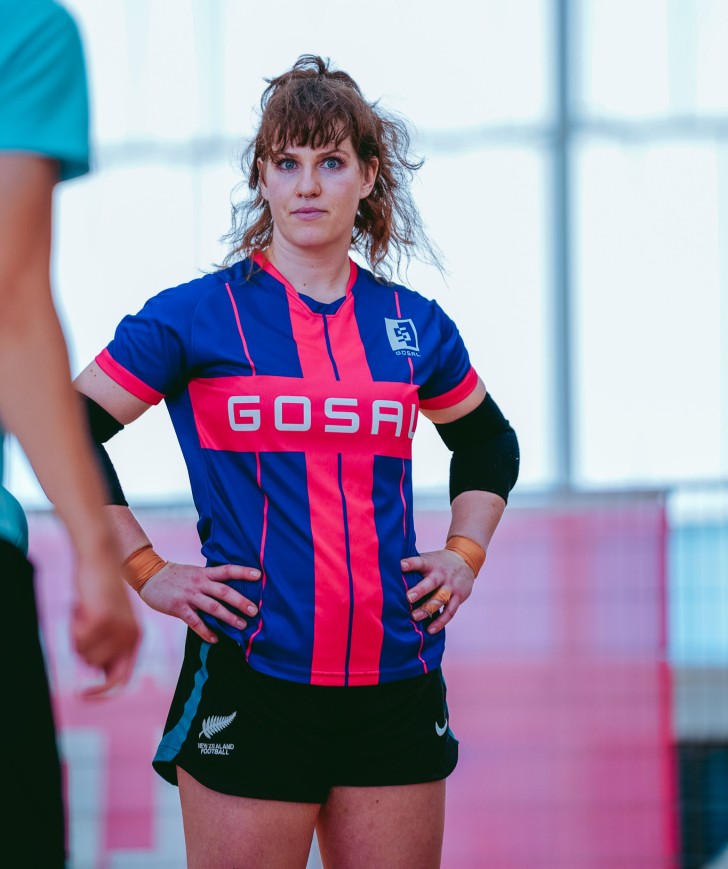
New Zealand Football Performance and Prevention programme
- ACC will invest $2.5 million into the New Zealand Football Prevention and Performance programme. This year it has a focus on concussion prevention, education and safe return to play.
- In 2024, ACC accepted 48,234 football-related injuries which came at a cost of $21 million to help people recover.
- Last year, ACC accepted 1,221 football-related concussion injuries which came at a cost of $3.4 million to help people recover.
- The New Zealand Football Performance and Prevention programme delivers resources to help players prepare, perform and recover.



